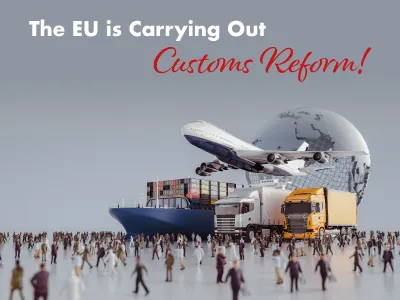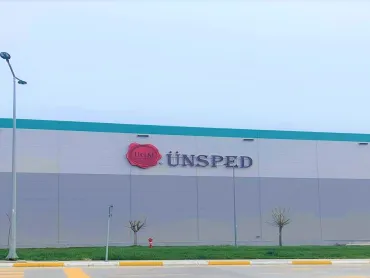
After the reform package announced by the 'European Customs Union last May, the European Union (EU) is preparing to establish a new data center to strengthen the control capacity of customs and reduce lengthy procedures in response to increasing commercial activities. So, what is the content of this reform package previously presented by the EU Commission? According to this reform package, cost-effective and practical cooperation is expected to be established in the risk management-based relationship between institutions and enterprises for the administration of the Customs Union.
This project, which has the most ambitious and comprehensive reform since the establishment of the EU Customs Union in 1968, responds in particular to the enormous increase in trade volumes, the rapidly increasing EU standard that needs to be checked at the border, and the current pressures under which EU Customs operate, including changing geopolitical realities and crises. Responds to the proposed measures are practices that will significantly simplify customs processes for EU Customs and businesses. Thanks to the reform package that embraces digital transformation, cumbersome customs procedures will be reduced, and traditional declarations will have a more innovative, data-driven approach to import control. At the same time, customs authorities will have the tools and resources to accurately assess and stop imports for EU citizens and the economy.
The new framework will contribute to a secure and competitive Single Market system by making EU Customs more sustainable and digitally friendly. For example, it will facilitate data reuse by reducing the time required to complete import processes and providing a single EU interface. Thus, customs reporting requirements for traders will become more straightforward and rational.
Three Pillars of the EU Customs Reform
A new partnership of the business world
In the reformed EU Customs Union, activities, products, and supply chain data that want to be imported into the EU can record all information in a single online environment. This cutting-edge technology provides the enterprise with a 360-degree overview of supply chains and the movement of goods through machine delivery, artificial intelligence, and human intervention by compiling data provided by the business.
A more innovative approach to customs controls
The proposed new system gives customs authorities a bird's-eye view of the supply chains and production processes of goods entering the EU. All member states can access data simultaneously and bring together information to respond to risks more quickly, consistently, and effectively. To help member states prioritize the suitable risks and coordinate their controls and inspections, especially in times of crisis, information and expertise will be pooled and evaluated at the EU level through the new EU Customs Administration, which acts in line with the EU Customs Data Centre. The new regime will significantly improve cooperation between customs and market surveillance and law enforcement authorities at the EU and national level, including information sharing through the Customs Data Centre.
A more modern approach to e-commerce
Today's reform will make online platforms critical in ensuring that goods sold online into the EU comply with all customs obligations. This is a significant departure from the current customs system, which places responsibility on the individual consumer and carriers. Platforms will, therefore, be responsible for ensuring that customs duties and VAT are paid at the time of purchase, so consumers will no longer face hidden charges or unexpected paperwork when the package arrives. With online platforms as official importers, EU consumers will be assured that all duties have been paid and that their purchases comply with EU environmental, safety, and ethical standards.
In the developing and changing world, the adoption of applicable, accessible, and digital management methods by the customs and logistics world is a critical factor in preventing any crisis that may be encountered. In this context, the EU's expectation from the customs reform will be to make the processes more sustainable, secure, and accessible.
 Back
Back







